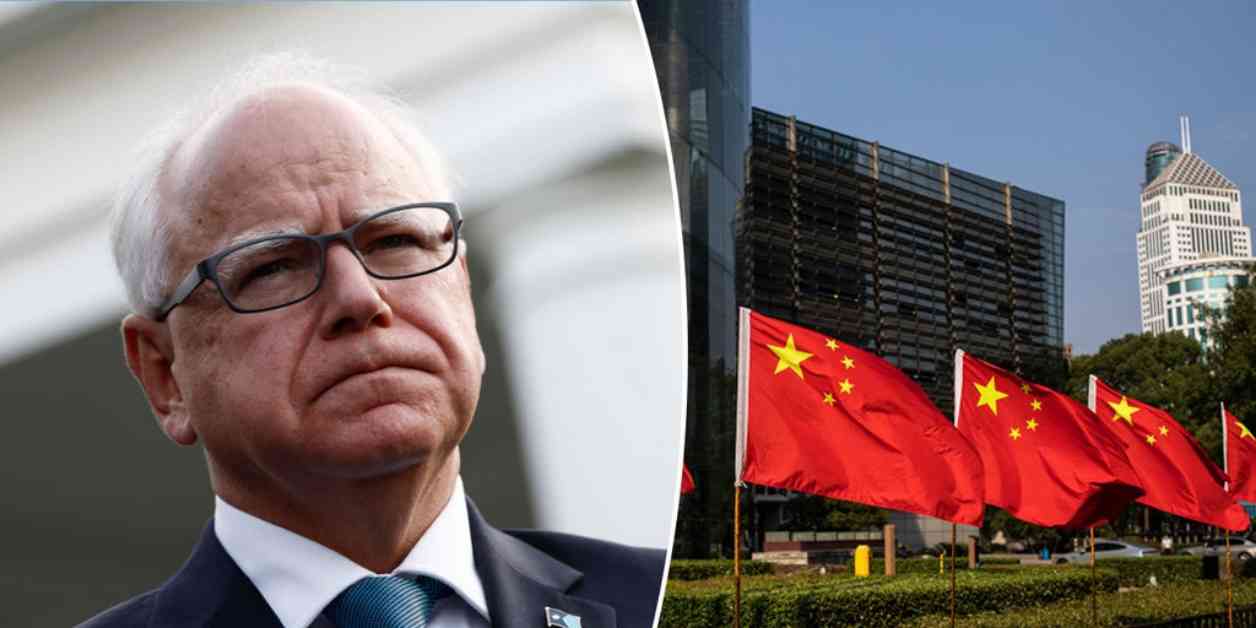Minnesota Governor Tim Walz recently came under the spotlight after a letter he wrote boasting about hosting senior Chinese leaders in Minnesota was uncovered by Fox News Digital. The letter was showcased by the Minnesota International Chinese School on its YouTube channel in celebration of the school’s Chinese New Year. In the letter, Governor Walz emphasized the longstanding relationship between Minnesota and China, highlighting the ancestral connections that thousands of Minnesotans claim to have with China. He mentioned how these connections have facilitated ties between the two regions in areas such as education, trade, and investment opportunities.
The letter came shortly after Zhao Jian, the Consul General of China in Chicago, sent a greeting in Chinese to the school. Governor Walz’s connection to Jian has raised questions, especially after a meeting between the two discussing “China-U.S. relations and sub-national cooperation” was revealed earlier this year. This meeting, along with Governor Walz’s past ties to China, has garnered increased scrutiny since he was chosen as the Democratic vice presidential nominee by Vice President Kamala Harris.
Governor Walz’s history with China includes working as a teacher in Guangdong in 1989 and making several trips to the country over the years. He has expressed his belief in the potential for cooperation with China, despite acknowledging the need to address issues such as activities in the South China Sea. Additionally, Governor Walz has defended the Chinese Communist system in the past, highlighting the aspects of equality and support provided to individuals.
However, concerns have been raised about Governor Walz’s ties to China and the potential influence this could have on U.S. policy. A Department of Homeland Security (DHS) official warned that Governor Walz’s selection as the vice presidential nominee could align with activities the People’s Republic of China (PRC) has been conducting with him and local government officials. There are worries that Beijing could target Governor Walz to exert influence on U.S. policy decisions.
Furthermore, Governor Walz has faced criticism for his connections to a Minnesota-based medical research institute that has collaborated with a firm identified by the Pentagon as a “Chinese military company.” He welcomed a delegation from China to the institute in 2014, including individuals with ties to the Chinese Communist Party. This has raised concerns about the influence of Chinese officials with controversial backgrounds on the institute’s work.
In light of these revelations, the scrutiny surrounding Governor Walz’s ties to China continues to grow. As the Democratic vice presidential nominee, his past interactions and statements regarding China have come under intense scrutiny, with questions raised about the potential impact on U.S.-China relations and national security. Governor Walz’s stance on fostering cooperation with China while acknowledging areas of disagreement has sparked debates about the complexities of engaging with a global superpower with differing ideologies and interests.





















